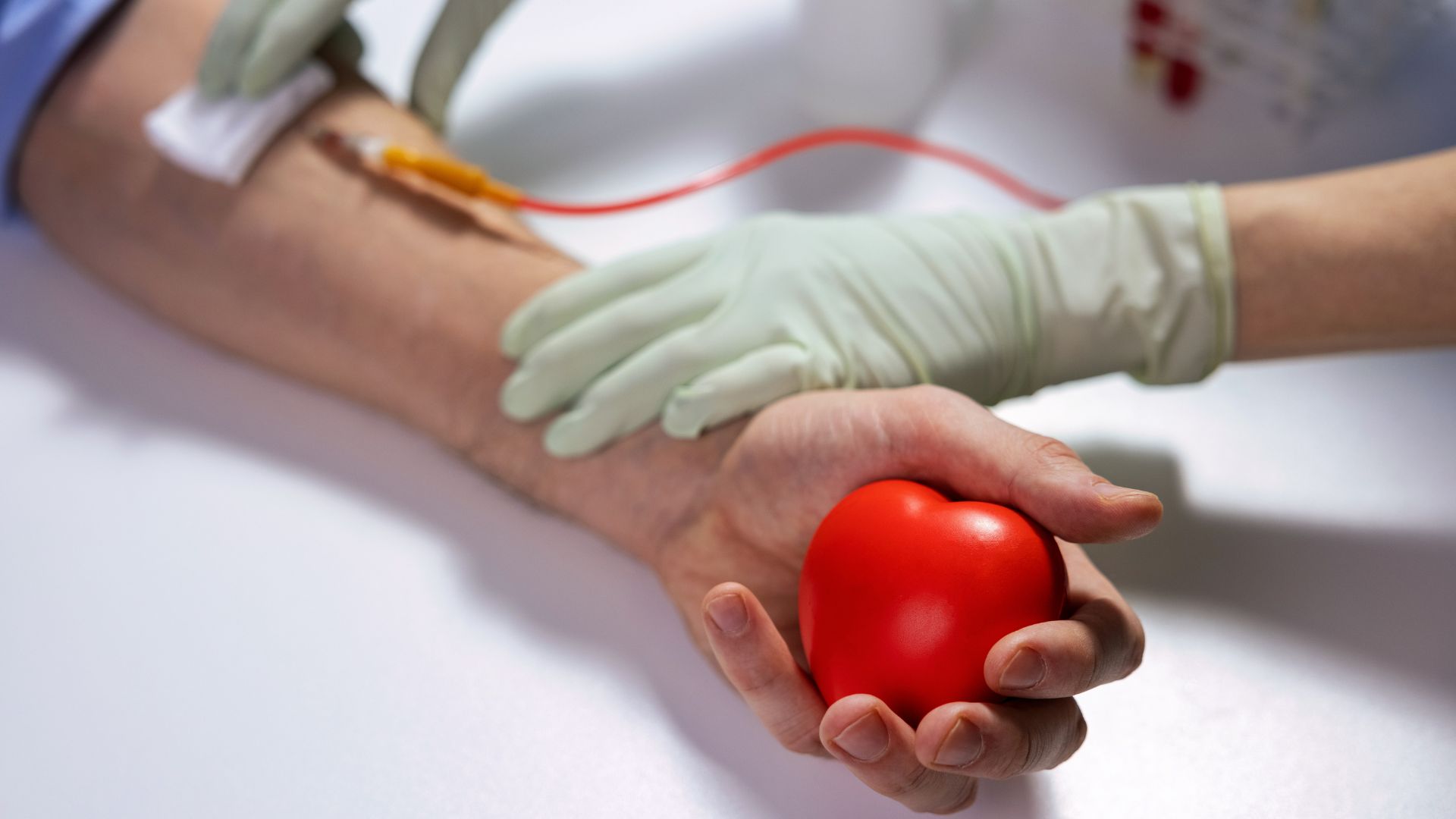
Blood donation saves lives. National Blood Donor Month, which celebrates the lifesaving contributions of people who roll up their sleeves to assist patients in need, is celebrating its 52nd year in January. Every day, patients around the world rely on blood transfusions to survive. That’s why it’s so essential for people to donate blood regularly. Every pint of donated blood can help up to three people. During Blood Donation Month, we want to remind everyone that donations make a real difference in the lives of others. Here’s more information about who can and can’t give blood, and what happens to donated blood.
Who Can Give Blood
Depending on the type of donation, donors must fulfil several conditions to be qualified to give blood safely for both patients and recipients.
- For Whole Blood Donation: Donations are allowed every 56 days, up to 6 times yearly. In most states, you must be at least 16 years old and you have to be at least 110 pounds. You should also be of sound health when donating blood and feel well.
- For Power Red Donation: Donations can be made up to three times each year, every 112 days, but only if you’re in good health. In most areas, male donors must be at least 17 years old and at least 5’1″ tall and a minimum of 130 lbs. Female donors must be at least 5’5″ in height and at least 19 years old and a minimum of 150 lbs.
- For Platelets Donation: You can donate platelets every seven days up to 24 times a year. You must be in good physical and mental health. Most states require that you be at least 17 years old, and you have to be at least 110 pounds.
- For AB Elite Plasma Donation: You must have type AB blood and be in excellent health and feeling well to donate. You can donate up to 13 times a year, every 28 days. At least 17 years of age is required, and you must be at least 110 pounds.
(Red Cross Blood Services)
Who Cannot Give Blood
Some conditions can cause a temporary or permanent disqualification from donating blood. Anyone with hepatitis, anemia, high blood pressure, or malaria cannot donate blood temporarily until medically cleared. People with new piercings, tattoos might have to wait for 3 months in some states before they can donate blood. (Red Cross Blood Services)
What Happens to Donated Blood
The initial needle poke required for blood donation is simple and fast, taking only about ten minutes. Once you have completed your donation, the blood donation center staff places your collection bag in a cooler with the others until the donations can be taken for testing and processing; take note that the staff will also set aside a tube of your blood for further testing. Before your blood can be used by someone else, it goes through several processes, starting with freezing it for storage.
Laboratory Processes
The majority of whole blood donations are divided into red cells, platelets, and plasma—components that can be transfused. High-speed centrifuges are used by technicians to spin the blood and split it into its three constituent parts. The testing and processing stages are finished in about three days. Then, up to three separate persons can each be saved using one of the three blood components.
The Red Cross distributes the various blood products to hospitals all around the United States and U.S. territories. (Chamberlin, 2020)
Consider Giving the Gift of Blood Donation
Every day, people all over the world rely on blood transfusions to treat conditions like anemia, cancer, and trauma. While it is important to donate blood all year round, blood donation month is a great time to raise awareness about the importance of giving blood. If you are eligible to give blood, consider doing so during this month. It only takes a few minutes out of your day, and it could potentially save a life.
Works Cited
“Eligibility Requirements.” Blood Donation Eligibility Requirements | Red Cross Blood Services, www.redcrossblood.org/donate-blood/how-to-donate/eligibility-requirements.html.
Chamberlin, Kaitlyn. “Here’s What Happens to Your Blood after You Donate It.” The Healthy, The Healthy, 3 Nov. 2020, www.thehealthy.com/healthcare/what-happens-blood-after-donation/
















